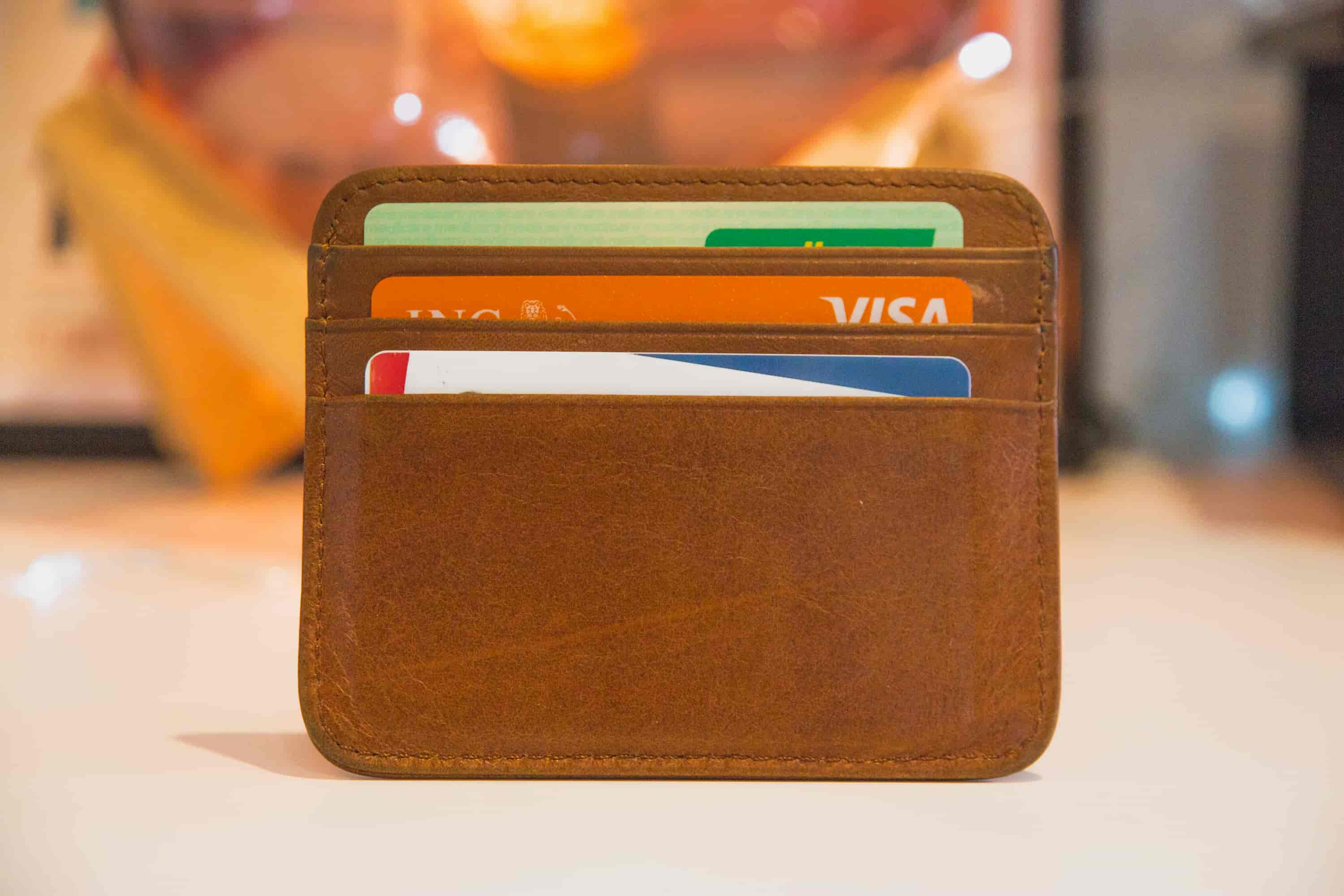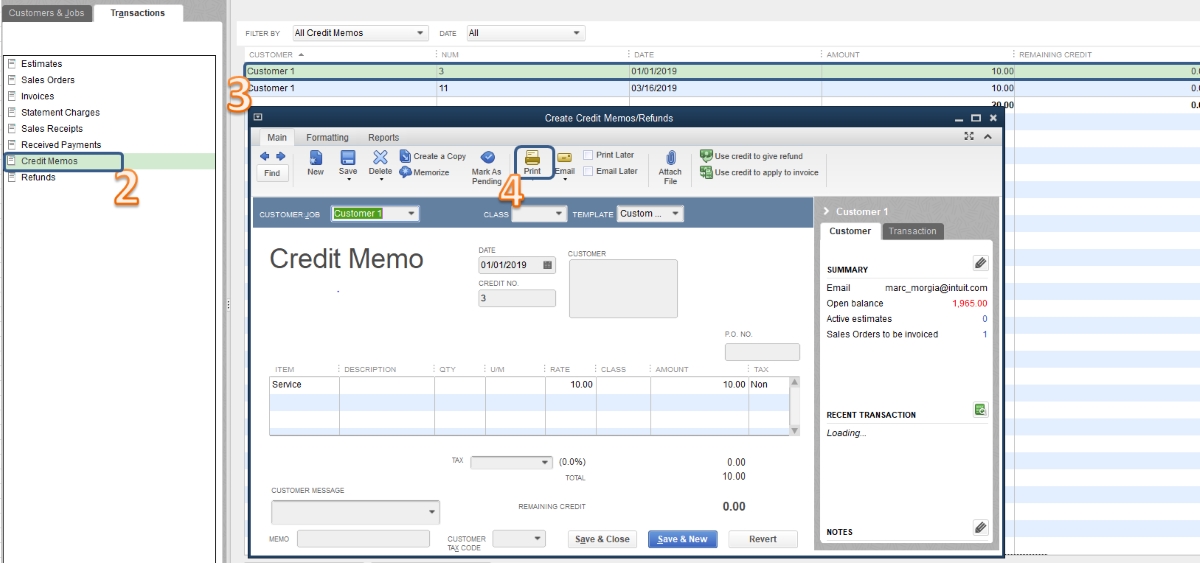

Finance
How To Build Credit While Incarcerated
Modified: March 1, 2024
Learn how to build credit and manage your finances while incarcerated. Gain valuable insights and strategies to improve your financial situation despite being in prison.
(Many of the links in this article redirect to a specific reviewed product. Your purchase of these products through affiliate links helps to generate commission for LiveWell, at no extra cost. Learn more)
Table of Contents
- Introduction
- Importance of Building Credit While Incarcerated
- Understanding the Basics of Credit
- Steps to Build Credit While Incarcerated
- Obtain a Secure Credit Card
- Make Timely Payments
- Monitor Credit Reports
- Explore Credit Building Programs for Inmates
- Seek Financial Education Opportunities
- Challenges of Building Credit While Incarcerated
- Conclusion
Introduction
Building credit is an essential aspect of financial stability and future opportunities. However, for those who find themselves incarcerated, the possibility of building credit may seem out of reach. The truth is, while it may be more challenging, it is not impossible to establish credit while serving time. In fact, taking steps to build credit while incarcerated can have a positive impact on reintegration into society and future financial wellness.
Having a good credit score opens doors to various financial benefits, including access to loans, credit cards, lower interest rates, and even better job opportunities. It demonstrates financial responsibility and trustworthiness to potential lenders and landlords. Building credit while in prison or jail can pave the way for a smoother transition back into society post-release and improve overall financial prospects.
Understanding the basics of credit is a crucial first step in building credit while incarcerated. Credit refers to a person’s borrowing history and their ability to repay debts. It is represented by a three-digit number known as a credit score, which lenders use to assess an individual’s creditworthiness. Factors such as payment history, credit utilization, length of credit history, types of credit, and new credit applications influence one’s credit score.
In this article, we will explore practical steps that individuals can take to build credit while incarcerated. We will also discuss the various challenges that may arise and provide insights on overcoming them. By following these strategies and being proactive, even while incarcerated, individuals can lay a foundation for a brighter financial future.
Importance of Building Credit While Incarcerated
Building credit while incarcerated may not be at the top of your priority list, but it is a crucial step towards financial security and independence. Here are some reasons why building credit while in prison or jail is important:
- Reintegration into Society: A good credit score can ease the transition from incarceration to life outside. It opens doors to housing opportunities, employment prospects, and even basic necessities like utilities and cell phone contracts. By building credit while incarcerated, you are setting yourself up for a smoother reintegration process.
- Access to Financial Opportunities: Whether it’s securing a loan for education, a car, or starting a small business, having a solid credit history gives you access to financial opportunities that may not be available otherwise. By building credit while in prison or jail, you are creating options for yourself and increasing your financial possibilities.
- Lower Interest Rates: With a good credit score, you can enjoy lower interest rates on loans and credit cards. This means you can save money in interest payments over time. By building credit while incarcerated, you are setting the foundation for future financial savings.
- Building Financial Responsibility: Building credit requires discipline and financial responsibility. By taking steps to establish credit while incarcerated, you are demonstrating your commitment to financial growth and stability. This mindset can translate into positive financial habits upon release.
- Creating a Positive Credit History: A strong credit history shows lenders and creditors that you are trustworthy and reliable when it comes to repaying debts. Having a positive credit history can make it easier to access credit and financial opportunities in the future.
It’s important to recognize that building credit while incarcerated may not be easy. However, the long-term benefits and opportunities that come with a good credit score make the effort worthwhile. By taking proactive steps towards building credit, you are investing in your future financial well-being.
Understanding the Basics of Credit
Before delving into the steps to build credit while incarcerated, it’s essential to have a solid understanding of the basics of credit. Here are the key concepts you should know:
Credit Score: Your credit score is a three-digit number that lenders use to assess your creditworthiness. It is determined based on factors such as payment history, credit utilization, length of credit history, types of credit, and new credit applications. The higher your credit score, the more likely you are to be approved for credit and receive favorable terms.
Payment History: Your payment history refers to your track record of making payments on time. Consistently making timely payments shows lenders that you can be trusted to repay your debts as agreed.
Credit Utilization: Credit utilization is the percentage of your available credit that you are using. It’s recommended to keep your credit utilization below 30% to maintain a good credit score. For example, if you have a total credit limit of $10,000, you should aim to use $3,000 or less.
Length of Credit History: The length of your credit history is the amount of time you’ve had credit accounts open. Having a longer credit history can positively impact your credit score, as it demonstrates your ability to manage credit over time.
Types of Credit: The types of credit you have, such as credit cards, loans, and mortgages, have an impact on your credit score. A healthy mix of credit accounts can positively impact your creditworthiness.
New Credit Applications: Making multiple credit applications in a short period can negatively affect your credit score. Each time a lender or creditor pulls your credit report, it leaves a hard inquiry, which can temporarily lower your score.
Credit Reports: Your credit report is a detailed record of your credit history, including your payment history, types of credit, and any negative marks such as late payments or defaults. It’s important to regularly review your credit report to identify any errors or discrepancies.
By understanding these fundamental concepts, you can make informed decisions and take the necessary steps to build and maintain a positive credit history while incarcerated.
Steps to Build Credit While Incarcerated
Building credit while incarcerated may seem challenging, but with determination and the following strategies, you can establish and improve your credit score:
- Obtain a Secure Credit Card: A secure credit card is a great tool for building credit. With a secure credit card, you provide a security deposit that serves as collateral for your credit limit. Make small purchases and consistently pay off the balance in full and on time each month to build a positive payment history.
- Make Timely Payments: Whether you have a secure credit card or other debts, such as student loans, ensure that you make timely payments. Late payments can have a significant negative impact on your credit score, so it’s essential to prioritize paying off debts on time, even while incarcerated. Consider setting up automatic payments or enlisting the help of a trusted family member or friend to ensure payments are made promptly.
- Monitor Credit Reports: Regularly monitor your credit reports to ensure accuracy and identify any errors. Even while incarcerated, you have the right to access your credit reports for free once a year. Address any inaccuracies promptly by contacting the credit bureaus and providing the necessary documentation.
- Explore Credit Building Programs for Inmates: Some correctional facilities offer credit building programs specifically designed for inmates. These programs may provide financial education, resources for building credit, and guidance on managing money responsibly. Take advantage of such programs if available.
- Seek Financial Education Opportunities: Expand your financial knowledge while incarcerated by participating in financial education programs. These programs can provide insights into budgeting, credit management, and other personal finance topics, helping you make informed decisions and develop good financial habits.
Remember, building credit takes time and persistence. The key is to establish positive credit habits, such as making timely payments and maintaining low credit utilization. By doing so, you are laying the foundation for a strong credit history that will benefit you in the long run.
Obtain a Secure Credit Card
One of the first steps to building credit while incarcerated is to obtain a secure credit card. A secure credit card is a valuable tool for establishing credit, especially for individuals with limited or no credit history. Here’s how it works and how to make the most of it:
A secure credit card requires a security deposit that serves as collateral. The amount you deposit typically determines your credit limit. For example, if you deposit $500, your credit limit will be $500. This security deposit reduces the risk for the credit card issuer, making it easier for individuals with no credit or poor credit to get approved.
When using a secure credit card, it’s crucial to develop healthy credit habits that will positively impact your credit score. Here are some tips:
- Make Small Purchases: Use your secure credit card for small purchases that you can easily pay off each month. Low utilization of your credit limit shows responsible credit management.
- Pay On Time: Always make your credit card payments on time. Late or missed payments can harm your credit score and make it more difficult to build credit while incarcerated.
- Pay in Full: Pay off your credit card balance in full each month. This demonstrates responsible credit usage and helps avoid interest charges.
- Keep Your Balance Low: Aim to keep your credit card balance low in relation to your credit limit. Keeping your balance below 30% of your credit limit is generally recommended for building credit.
- Monitor Your Statements: Regularly review your monthly credit card statements to ensure there are no unauthorized charges or errors. Reporting any discrepancies promptly is essential for protecting your credit and financial well-being.
By using a secure credit card responsibly and making timely payments, you can start building a positive credit history even while incarcerated. Over time, as your credit score improves, you may be eligible for unsecured credit cards with higher credit limits and better terms.
Remember, establishing credit is a gradual process that requires patience and discipline. It’s important to use your secure credit card responsibly and avoid accumulating more debt than you can manage. By consistently demonstrating responsible credit behavior, you can improve your creditworthiness and lay a solid foundation for your financial future.
Make Timely Payments
One of the most crucial steps in building credit while incarcerated is making timely payments on your debts. Payment history is a significant factor in determining your credit score, so it’s essential to prioritize paying your bills on time. Here are some strategies to help you make timely payments:
- Create a Payment Schedule: Keep track of your payment due dates by creating a payment schedule. Whether you have credit card bills, student loans, or other financial obligations, note the due dates and set reminders to ensure you don’t miss any payments.
- Set Up Automatic Payments: If possible, set up automatic payments for your bills. Many lenders and service providers offer this option, allowing you to schedule payments to be deducted directly from your designated account. Automatic payments can help ensure that you consistently make on-time payments, even while incarcerated.
- Enlist Help from Family or Friends: If you are unable to set up automatic payments, consider asking a trusted family member or friend to help ensure timely payments. They can help by making payments on your behalf or reminding you of upcoming due dates.
- Communicate with Creditors: If you are facing financial difficulties and are unable to make a payment, it’s important to communicate with your creditors. Reach out to them and explain your situation. Some creditors may be willing to work out a temporary payment plan or offer other assistance options.
- Utilize Online Payment Options: Take advantage of online payment options provided by your creditors. Many companies allow you to make payments online, which can be particularly useful while incarcerated. Ensure you have access to online banking or coordinate with trusted individuals who can assist you in making payments.
By consistently making timely payments on your debts, you demonstrate financial responsibility and build a positive payment history. This, in turn, enhances your creditworthiness and improves your credit score over time.
Keep in mind that building credit while incarcerated may require extra effort and coordination. It’s important to stay organized and prioritize your payments to avoid late payments or defaulting on your obligations. By doing so, you are taking significant steps towards building a solid credit foundation for your future.
Monitor Credit Reports
Monitoring your credit reports is a crucial step in building credit while incarcerated. Regularly reviewing your credit reports allows you to track your progress, identify any errors or discrepancies, and ensure the accuracy of your credit history. Here’s what you need to know about monitoring your credit reports:
Accessing Your Credit Reports: Even while incarcerated, you have the right to access your credit reports for free once a year. You can request your reports from each of the three major credit bureaus – Equifax, Experian, and TransUnion. This can be done online, through mail, or by phone.
Reviewing Your Reports: Carefully review each section of your credit reports, paying attention to details such as your personal information, accounts, payment history, and any negative marks. Look out for any errors, such as incorrect account information or late payments that you believe are inaccurate.
Reporting Errors: If you spot any errors or discrepancies on your credit reports, take immediate action to address them. Contact the credit bureaus in writing, providing detailed information about the error and any supporting documentation. The credit bureaus are required to investigate your dispute and make corrections if necessary.
Disputing Negative Marks: If you come across negative marks on your credit reports that are accurate but unfavorable, like late payments or collections, you cannot remove them before the designated time frame. However, focus on making timely payments in the present to gradually improve your credit score and establish a positive credit history.
Monitoring Services: Consider enrolling in a credit monitoring service that provides regular updates on any changes or activity on your credit reports. These services can help you stay informed about any potential identity theft or unauthorized use of your credit.
Stay Vigilant: It’s important to continue monitoring your credit reports periodically, even after establishing your credit while incarcerated. Regularly reviewing your reports ensures that your credit information remains accurate and provides insight into your progress.
By monitoring your credit reports and promptly addressing any errors, you can ensure the accuracy of your credit history. This, in turn, helps to maintain a positive credit score and lays the groundwork for future financial success.
Explore Credit Building Programs for Inmates
While incarcerated, it’s worth exploring if there are any credit building programs specifically designed for inmates. These programs can provide valuable resources and guidance on how to build credit and manage your finances effectively. Here’s what you need to know about credit building programs for inmates:
Availability of Programs: Not all correctional facilities offer credit building programs, but it’s worth inquiring about any available resources. These programs may be offered as part of financial literacy or reentry programs aimed at helping inmates successfully reintegrate into society.
Financial Education: Credit building programs often include financial education components to help inmates develop essential money management skills. These educational opportunities may cover topics such as budgeting, saving, debt management, and credit building strategies. Actively participating in these programs can provide you with the knowledge and tools necessary for long-term financial success.
Credit Building Resources: Some programs may provide access to credit building resources, such as secured credit cards or information on how to obtain one. They might offer guidance on responsible credit card usage, payment strategies, and other credit-building techniques. These resources can be valuable in establishing and improving your credit while incarcerated.
Building a Supportive Network: Credit building programs can also connect you with a supportive network of professionals and peers who can provide guidance and encouragement throughout your credit-building journey. By seeking assistance from mentors or advisors within the program, you can access personalized guidance on credit-building strategies that suit your specific circumstances.
Maximizing Opportunities: Take full advantage of any credit building programs available to you. Attend workshops, engage in discussions, and ask questions to ensure you absorb as much information as possible. Apply the knowledge and skills learned to your own financial situation, and implement the strategies provided to develop a solid credit history.
Even if credit building programs are not currently available at your correctional facility, you can still take proactive steps in building your credit. Utilize other strategies mentioned in this article, such as obtaining a secure credit card and making timely payments. Remember, taking control of your financial future and actively working to build credit while incarcerated can greatly benefit your reentry into society and improve your overall financial well-being.
Seek Financial Education Opportunities
While incarcerated, it’s important to seek out financial education opportunities that can empower you with the knowledge and skills necessary for building credit and managing your finances effectively. Here are some ways to access financial education while incarcerated:
Correctional Facility Programs: Many correctional facilities offer financial literacy programs as part of their rehabilitation and reentry initiatives. These programs may cover a wide range of topics, including budgeting, credit management, debt repayment, and financial goal setting. Take advantage of these programs to enhance your financial knowledge and skills.
Community Resources: Reach out to community organizations, nonprofits, or local financial institutions that offer financial education programs for inmates. These organizations may provide workshops, seminars, or educational materials designed to improve financial literacy and help individuals build credit while incarcerated.
Online Courses: Explore online platforms that offer free or low-cost financial education courses. Many reputable organizations provide self-paced modules on personal finance topics, including credit building strategies and debt management. These courses can be accessed from a computer or smartphone, making them convenient for individuals who are incarcerated.
Library Resources: Utilize your facility’s library resources to access books, magazines, or educational materials focused on personal finance. Look for resources that cover credit building, budgeting, and other financial topics to deepen your understanding and develop practical skills that contribute to your financial success.
Workshops and Guest Speakers: Stay informed about any financial education workshops or guest speaker events organized within the prison or jail. Attend these sessions to learn from experts who can provide valuable insights and practical tips on credit building, money management, and other financial matters.
Personal Study: Take initiative by undertaking independent self-study on personal finance topics. Utilize available resources and materials, including books, articles, and reputable websites, to educate yourself on credit building strategies, understanding credit reports, and establishing healthy financial habits. Self-study shows your commitment to personal growth and building a strong financial foundation.
By seeking out and actively participating in financial education opportunities, you can enhance your financial literacy and develop crucial skills for building credit. Remember, education is a powerful tool that can empower you to make informed financial decisions and lay the groundwork for a secure financial future.
Challenges of Building Credit While Incarcerated
Building credit while incarcerated comes with its own set of challenges. It’s important to be aware of these obstacles and develop strategies to overcome them. Here are some common challenges individuals face when trying to build credit while incarcerated:
- Limited Access to Resources: Incarcerated individuals often face limited access to resources, including the internet, phone, or personal financial documents. This can make it difficult to obtain credit reports, research credit building strategies, or stay updated on financial matters. Working within the constraints of your correctional facility and leveraging available resources is crucial.
- Financial Constraints: Incarceration can often result in financial strain. The inability to earn income, coupled with existing debts, can make it challenging to manage financial responsibilities and make progress in building credit. Prioritize setting up a budget, focusing on low-cost credit-building strategies, and seeking financial assistance when available.
- Limited Access to Credit Options: Building credit often requires access to credit cards, loans, or other financial instruments. However, individuals may face challenges in obtaining credit while incarcerated due to their limited ability to engage in financial transactions. Explore secured credit card options or credit building programs specific to inmates to overcome this hurdle.
- Lack of Financial Education: Many individuals may have limited financial knowledge or have never received formal financial education. This lack of knowledge about credit, budgeting, and personal finance can make it harder to navigate the credit-building process. Actively seek out financial education programs, workshops, or self-study resources available within the correctional facility to bridge this gap.
- Receiving Payments and Managing Finances: Incarceration can present challenges in receiving and managing payments, especially if you are reliant on outside assistance or have limited communication channels. Establish clear and reliable channels for receiving funds and consider enlisting the help of trusted family members or friends to assist in managing your finances, making payments, or monitoring credit reports.
Overcoming these challenges requires perseverance, resourcefulness, and a proactive mindset. Make the most of the available resources, seek assistance when needed, and focus on implementing effective credit-building strategies within the constraints of your incarceration. Remember that building credit takes time, and even small steps can make a significant impact on your long-term financial goals.
Conclusion
Building credit while incarcerated may present some challenges, but it is not impossible. By taking proactive steps and implementing effective strategies, you can lay the foundation for a stronger financial future. Here are the key takeaways:
First and foremost, understand the basics of credit and how it impacts your financial well-being. Educate yourself on credit scores, payment history, credit utilization, and other factors that influence your creditworthiness.
Next, explore options for obtaining a secure credit card or participating in credit building programs designed for inmates. Utilize these opportunities to establish credit and demonstrate responsible credit management.
Making timely payments is crucial for building credit. Create a payment schedule, set up automatic payments, and enlist the help of trusted individuals to ensure that your bills are paid on time.
Regularly monitoring your credit reports is essential for maintaining accuracy, identifying errors, and tracking your credit-building progress. Take advantage of the free annual credit reports to review your credit history for any discrepancies.
Seek out financial education opportunities within the correctional facility or through community resources. Expand your knowledge of personal finance, budgeting, and credit management. The more informed you are, the better equipped you will be to make sound financial decisions.
While there are challenges to building credit while incarcerated, such as limited access to resources and financial constraints, don’t let them discourage you. Approach these challenges with determination and resourcefulness.
Building credit while incarcerated is an investment in your future. It can provide you with more financial opportunities and enhance your chances of a successful reintegration into society. Remember that building credit takes time, so be patient and persistent in implementing credit-building strategies.
Ultimately, by taking control of your financial well-being and actively working towards building credit while incarcerated, you are paving the way for a more secure and prosperous future.














